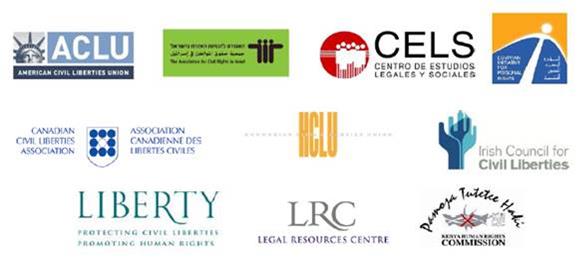Our dialogue will link the findings of these reports with the current situation of two of the most active regions in the world in terms of manifestations and protests: Africa and Latin America. The representatives from Centro de Estudios Legales y Sociales (CELS) and Egyptian Initiative for Personal Rights (EIPR), two of the leading human rights organizations in Argentina and Egypt correspondingly, will present the cases of their respective countries and the challenges faced in securing effective policing of social protests that respects human rights.
A statement has been submitted to the HRC session in which Christof Heyns presented his annual report, too, and it was read during the session today morning.
Both CELS and EIPR are member organizations of INCLO, a network of ten domestic human rights organizations that have come together to work on the promotion of fundamental rights and freedoms by coordinating and mutually reinforcing the work of the member organizations on their respective countries and collaborating on a bilateral and multilateral basis. The other members of INCLO are: the American Civil Liberties Union (ACLU), the Association for Civil Rights in Israel (ACRI), the Canadian Civil Liberties Association (CCLA), Hungarian Civil Liberties Union (HCLU), the Irish Council for Civil Liberties (ICCL), the Kenya Human Rights Commission (KHRC), the Legal Resource Centre (LRC); and Liberty.
INCLO published its first report in October of 2013. “Take Back the Streets: Repression and Criminalization of Protest Around the World” is a collection of case studies showing patterns of police crackdown and abuse against social protest, accompanied by concrete recommendations about protection of human rights in the context of assemblies. Copies will be available at the event.
Speakers:
Christof Heyns, UN Special Rapporteur on Extrajudicial, Summary or Arbitrary Executions
Maina Kiai, Special Rapporteur on the Rights to Freedom of Peaceful Assembly and of Association
Luciana Pol, Coordinator of the Institutional Violence and Citizen Security Policies Area, Centro de Estudios Legales y Sociales (CELS), Argentina
Karim Ennarah, Policing and Criminal Justice Researcher, Egyptian Initiative for Personal Rights (EIPR), Egypt
Moderator: Jennifer Turner, Human Rights Researcher, Human Rights Program, American Civil Liberties Union (ACLU), United States
Refreshments will be provided at 4 pm.
The event will be live streamed. To access the streaming click here.
